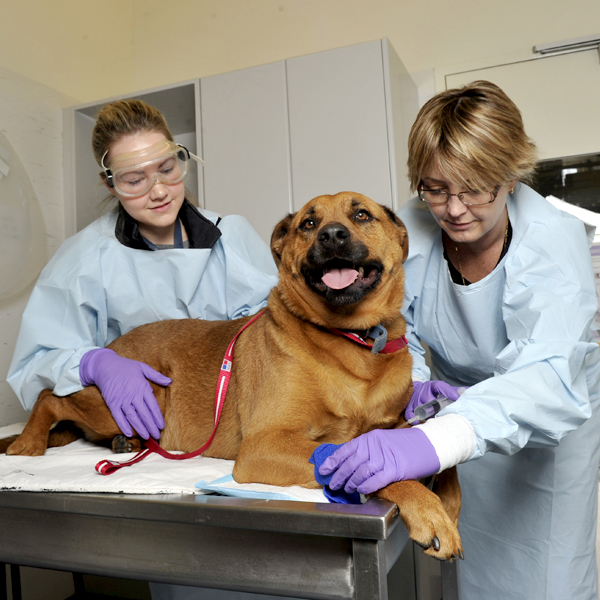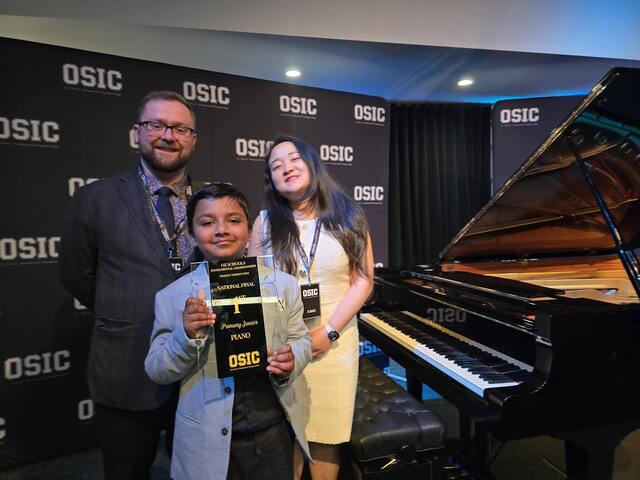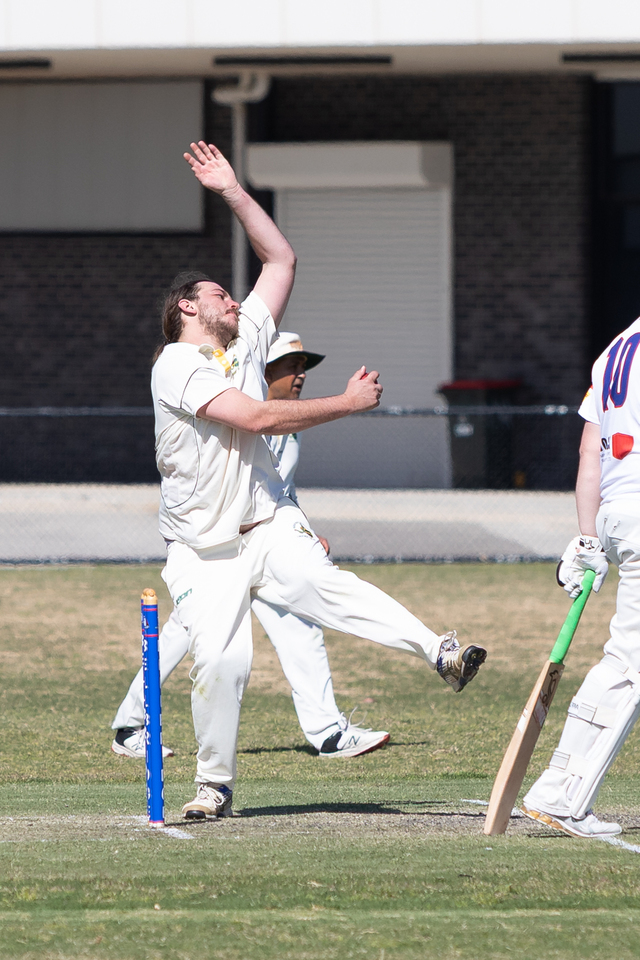Angela Valente discovers the lengths some people go through to treat and pamper their pets.
IN the name of love, pet owners across the west are going to incredible lengths for their companions.
They put up their cats and dogs in luxury accommodation at pet resorts while they take a vacation, hire professional dog walkers and groomers, or deck their pets in woollen jumpers to keep snug in winter.
Some even take the step of blessing their precious animals in church ceremonies.
If things go bad, owners quickly turn to specialists at vet hospitals for help.
And when it’s finally time to say goodbye, many owners choose to have their pets’ ashes interned at pet cemeteries like Wooling Hill garden estate in Gisborne.
It’s easy to see that now, more than ever, people are doing anything and everything for the family pet.
Melbourne University’s veterinary clinic in Werribee runs much like a hospital for humans.
The waiting room walls are lined with blue and cream chairs; it’s tidy and sterile. There’s a pile of magazines, too.
To the left of reception are consulting rooms and down a hallway lies the intensive care unit and emergency area.
This is where the sickest animals are kept.
There’s a dachshund named Sophie who slipped a disc in her back and came to the hospital paralysed. She needed spinal surgery.
Earlier in the day, a pacemaker was placed in a cat to correct its heartbeat; a dog had its second brain tumour removed; another recovered from a blood transfusion.
The clinic undertakes most procedures available to humans, such as total hip replacements and chemotherapy.
It has expert neurologists, cardiologists, radiologists and anaethetists, and can perform endoscopies and ultrasounds, MRIs and CT scans. It even has a nuclear medicine area.
“There’s nothing more rewarding than seeing an animal that is sick and making it better,” says Caroline Mansfield, head of internal medicine for small animals.
She likens her job to that of a detective.
“I really love the challenge of trying to figure out what is wrong. It’s more challenging because our patients can’t speak to us. They can’t tell us where they’re sore and exactly what they feel.”
She says insurance for your pet can help ease the cost associated with hospital stays and treatments. As with humans, it adds up.
Basic orthopedic surgery can cost about $2500. A total hip replacement can set you back $5000 for each hip and the same goes for a course of chemotherapy for lymphoma.
As a pet owner you could be up for thousands of dollars.
Which begs the question: how much would you be willing to pay?
“With pet insurance, it means the decisions are made entirely based on best practice,” Dr Mansfield says.
“Many people are prepared to spend that money and some people want to do their best and sometimes they have financial limitations.
“We don’t ever want to see people getting into financial difficulty for their pet.
‘‘I think pet insurance is a wonderful way around that.”
Much like Dr Mansfield, Vern Ryan, who operates a pet resort in Balliang East, has made a life out of other people’s pets.
He has been involved in the pet industry for 38 years, beginning as a dog trainer before establishing a resort for pets near Bacchus Marsh.
His clients want a “home-away-from-home” experience for their pets, Ryan explains.
And that’s exactly what’s on offer.
Besides standard kennels, the resort has exclusive executive and penthouse suites.
The executive rooms are housed in a western red cedar building, with tan tiles, four-poster beds, airconditioning, television, French doors, and a personal verandah and exercise area.
Within eight months of building it, Ryan boasts, “it paid for itself”.
“It went ballistic. We assumed, wrongly of course, it would be more for small, fluffy dogs that sit at home and sleep on the owners’ beds at night. How wrong we were.”
The resort’s clients range through all sizes, from great Danes and Labradors, to Maltese and shihtzus.
Ryan soon expanded the resort to include penthouse rooms.
They’re the size of a standard bedroom but have the latest flat-screen televisions, airconditioning and heat at night. They have full-sized beds, doonas, pillows, a leather couch, their own sundeck, artificial turf and an exercise area.
The rooms were built 16 months ago and have been booked out ever since.
Ryan is debating whether to build 10 or 20 more suites.
“We have to decide pretty quickly because we’re turning people away. The suites are extremely popular.
“Once we show people the three different levels of accommodation, they all want the penthouses. The funny thing about this is that the place sells itself.”
People treat their pets as part of their family. When the end of a pet’s life nears, more people are choosing to lay their best friend to rest in cemeteries designed specifically for animals.
The popularity of pet cemeteries is growing in Victoria, with memorial parks in Rowville, Pearcedale, Narre Warren and Pentland Hills. Wooling Hill garden estate in Gisborne was the first privately developed memorial garden in the state.
It is a relaxing tranquil environment owned by Helen McRae and Roger Smith.
The field of companions is a relatively small garden within the 16-hectare grounds that allows people to create a lasting memorial of their pets. It holds the remains of about 40 pets.
People travel far and wide to have lifelong memorials of their pets.
“Some people need a place to go to where they can identify with their pet,” McRae says.
“The philosophy behind it is that people love their loved ones and they love their pets.
“They have the ability to choose a unique site and a memorial in a place they feel that the person or animal would like.”
“We have funerals, weddings and wakes here too. It’s the full circle of life.”







